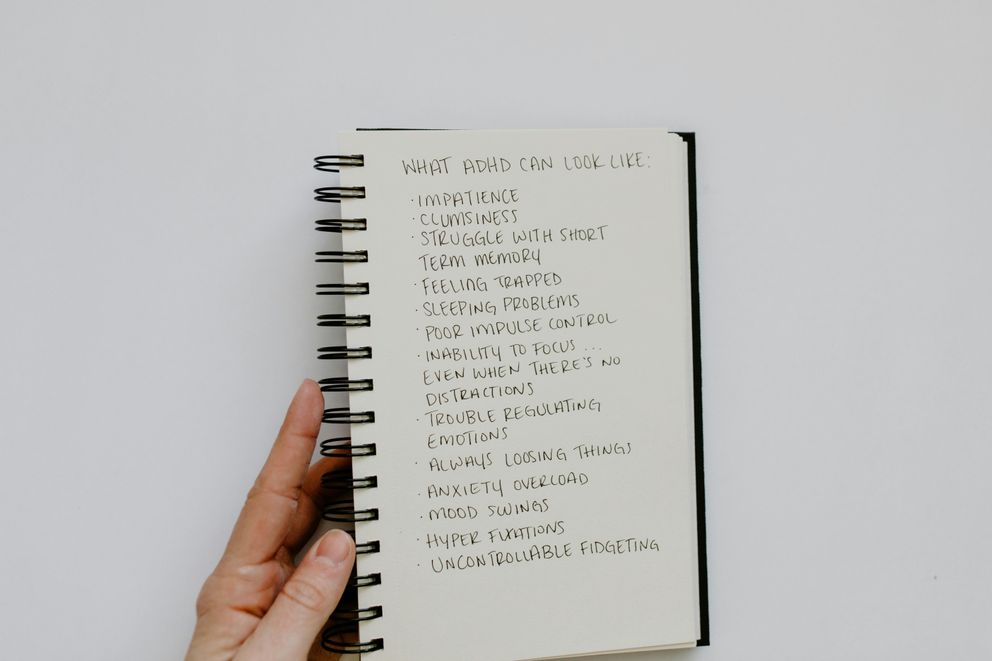
How Women with ADHD Can Manage Relationships: Effective Communication and Conflict Resolution
For women with ADHD, navigating relationships—whether romantic or platonic—can present unique challenges. ADHD symptoms like distraction, impulsivity,...

Managing weight can be a complex and challenging journey, particularly for women with Attention Deficit Hyperactivity Disorder (ADHD). ADHD can affect many aspects of life, including eating habits, exercise routines, and overall motivation.
This guide delves into the unique challenges women with ADHD face regarding weight loss and provides practical strategies to help manage and achieve health goals effectively.

One of the hallmark symptoms of ADHD is impulsivity, which can significantly impact eating habits. Women with ADHD might struggle with impulsive eating or binge eating, often driven by emotional dysregulation. Studies have shown that people with ADHD are up to 12 times more likely to exhibit binge eating behaviors compared to those without ADHD.
Additionally, the impulsivity associated with ADHD can lead to a preference for high-calorie, high-sugar foods, which contribute to weight gain.
Executive functioning deficits, common in ADHD, can make it difficult to establish and maintain routines, including regular exercise and meal planning. These challenges can lead to inconsistent eating patterns and a lack of physical activity, both of which are crucial for weight management.
Research indicates that adults with ADHD are less likely to engage in regular physical activity and more likely to have irregular eating habits.
ADHD medications, such as stimulants like Adderall (amphetamine), Ritalin (methylphenidate), and Vyvanse (lisdexamfetamine), can have varying effects on weight. While some medications suppress appetite, leading to weight loss, others might have no significant impact or could potentially lead to weight gain once the medication wears off.
It’s not uncommon for appetite suppression to diminish over time, leading to potential overeating when the medication is not active. Understanding and managing these side effects is essential for effective weight management.

Creating a structured meal plan can help manage impulsive eating and ensure balanced nutrition. Incorporating regular meal times and preparing healthy snacks in advance can reduce the temptation to reach for unhealthy options. Apps like MyFitnessPal or Paprika can be useful tools for planning and tracking meals.
Example Snack Options:
Mindful eating involves paying full attention to the experience of eating and drinking, both inside and outside the body. Practicing mindful eating can help women with ADHD slow down and recognize their body’s hunger and fullness signals, reducing the likelihood of overeating.
A study published in the The Journal of Psychosomatic Research found that mindfulness-based interventions can significantly reduce binge eating and improve overall eating behaviors in individuals with ADHD.
Incorporating Regular physical activity is crucial for weight loss and overall health. Finding enjoyable activities can increase the likelihood of maintaining a routine. Exercise can also help manage ADHD symptoms by improving focus and reducing impulsivity. Aim for at least 150 minutes of moderate aerobic activity or 75 minutes of vigorous activity each week, as recommended by the CDC (Psychology Today).
Example Activities:
Behavioral therapy can address the underlying ADHD symptoms that contribute to weight gain. Cognitive-behavioral therapy (CBT) is particularly effective in helping individuals develop healthier eating habits and improve impulse control. Working with a therapist who understands ADHD can provide personalized strategies and support.
Studies found that CBT significantly improved weight loss outcomes and eating behaviors in individuals with ADHD.
Consulting with a healthcare provider about ADHD medications is crucial. If current medications are affecting weight negatively, alternatives or adjustments might be necessary. It’s important to find a balance that manages ADHD symptoms effectively without hindering weight loss efforts.
Having healthy snacks readily available can prevent impulsive eating of unhealthy foods. Options like fruits, nuts, and yogurt are nutritious and can keep hunger at bay.
Visual reminders, such as sticky notes or alarms, can help maintain consistency in meal planning and exercise routines. These reminders can prompt healthy habits throughout the day.
Drinking plenty of water can help control appetite and support overall health. Sometimes, feelings of hunger are actually signs of dehydration.
Joining support groups, either online or in person, can provide motivation and accountability. Sharing experiences and strategies with others facing similar challenges can be incredibly supportive.
Weight loss for women with ADHD involves understanding the unique challenges posed by the condition and implementing strategies that address these issues. With structured planning, mindful eating, regular physical activity, and appropriate therapy, achieving weight loss goals is entirely possible.
Remember, the journey to weight loss is not a sprint but a marathon. Stay patient and persistent, and celebrate small victories along the way.
A: ADHD can impact weight loss through impulsive eating habits, difficulties in maintaining routines, and the side effects of medications. These factors can make it challenging to stick to a healthy diet and regular exercise regimen.
A: Structured meal planning, mindful eating practices, and keeping healthy snacks accessible can help manage impulsive eating. Behavioral therapy can also provide strategies to improve impulse control.
A: Yes, ADHD medications like Adderall, Ritalin, and Vyvanse can have varying effects on weight. Some medications suppress appetite, while others might lead to weight gain. Consulting with a healthcare provider can help manage these side effects.
A: Regular physical activity can improve focus, reduce impulsivity, and support weight loss. Finding enjoyable activities increases the likelihood of maintaining a consistent exercise routine.
A: Behavioral therapy, particularly Cognitive-behavioral therapy (CBT), can help address ADHD symptoms that contribute to weight gain. It provides strategies to develop healthier eating habits and improve impulse control.

For women with ADHD, navigating relationships—whether romantic or platonic—can present unique challenges. ADHD symptoms like distraction, impulsivity,...

Managing time can be a challenge for anyone, but for women with ADHD, time management often feels like an insurmountable task. ADHD can make it diffic...

Relationships—whether romantic, familial, or friendships—are central to our emotional well-being. But navigating these relationships can sometimes fee...

For many women, trauma is a deeply personal experience that can impact emotional well-being, relationships, and overall quality of life. From childhoo...

Career-related stress is something most women face at some point in their professional lives. The balancing act between personal and professional resp...